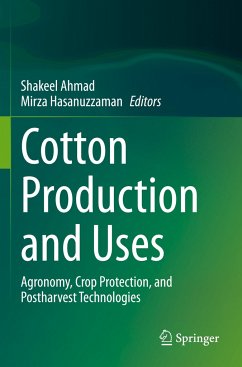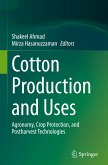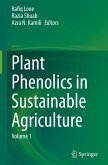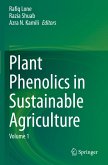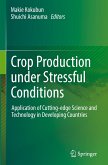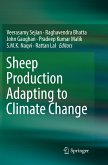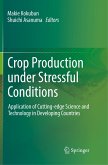Cotton Production and Uses
Agronomy, Crop Protection, and Postharvest Technologies
Herausgegeben:Ahmad, Shakeel; Hasanuzzaman, Mirza
Cotton Production and Uses
Agronomy, Crop Protection, and Postharvest Technologies
Herausgegeben:Ahmad, Shakeel; Hasanuzzaman, Mirza
- Broschiertes Buch
- Merkliste
- Auf die Merkliste
- Bewerten Bewerten
- Teilen
- Produkt teilen
- Produkterinnerung
- Produkterinnerung
This book provides a comprehensive and systematic overview of the recent developments in cotton production and processing, including a number of genetic approaches, such as GM cotton for pest resistance, which have been hotly debated in recent decades. In the era of climate change, cotton is facing diverse abiotic stresses such as salinity, drought, toxic metals and environmental pollutants. As such, scientists are developing stress-tolerant cultivars using agronomic, genetic and molecular approaches. Gathering papers on these developments, this timely book is a valuable resource for a wide…mehr
Andere Kunden interessierten sich auch für
![Cotton Production and Uses Cotton Production and Uses]() Cotton Production and Uses135,99 €
Cotton Production and Uses135,99 €![Plant Phenolics in Sustainable Agriculture Plant Phenolics in Sustainable Agriculture]() Plant Phenolics in Sustainable Agriculture150,99 €
Plant Phenolics in Sustainable Agriculture150,99 €![Plant Phenolics in Sustainable Agriculture Plant Phenolics in Sustainable Agriculture]() Plant Phenolics in Sustainable Agriculture149,99 €
Plant Phenolics in Sustainable Agriculture149,99 €![Crop Production under Stressful Conditions Crop Production under Stressful Conditions]() Crop Production under Stressful Conditions75,99 €
Crop Production under Stressful Conditions75,99 €![Sheep Production Adapting to Climate Change Sheep Production Adapting to Climate Change]() Sheep Production Adapting to Climate Change164,99 €
Sheep Production Adapting to Climate Change164,99 €![Crop Production under Stressful Conditions Crop Production under Stressful Conditions]() Crop Production under Stressful Conditions82,99 €
Crop Production under Stressful Conditions82,99 €![Land and its Uses - Actual and Potential Land and its Uses - Actual and Potential]() F. T. LastLand and its Uses - Actual and Potential41,99 €
F. T. LastLand and its Uses - Actual and Potential41,99 €-
-
-
This book provides a comprehensive and systematic overview of the recent developments in cotton production and processing, including a number of genetic approaches, such as GM cotton for pest resistance, which have been hotly debated in recent decades. In the era of climate change, cotton is facing diverse abiotic stresses such as salinity, drought, toxic metals and environmental pollutants. As such, scientists are developing stress-tolerant cultivars using agronomic, genetic and molecular approaches. Gathering papers on these developments, this timely book is a valuable resource for a wide audience, including plant scientists, agronomists, soil scientists, botanists, environmental scientists and extention workers.
Produktdetails
- Produktdetails
- Verlag: Springer / Springer Nature Singapore / Springer, Berlin
- Artikelnr. des Verlages: 978-981-15-1474-6
- 1st edition 2020
- Seitenzahl: 664
- Erscheinungstermin: 6. März 2021
- Englisch
- Abmessung: 235mm x 155mm x 36mm
- Gewicht: 990g
- ISBN-13: 9789811514746
- ISBN-10: 9811514747
- Artikelnr.: 61176068
- Herstellerkennzeichnung Die Herstellerinformationen sind derzeit nicht verfügbar.
- Verlag: Springer / Springer Nature Singapore / Springer, Berlin
- Artikelnr. des Verlages: 978-981-15-1474-6
- 1st edition 2020
- Seitenzahl: 664
- Erscheinungstermin: 6. März 2021
- Englisch
- Abmessung: 235mm x 155mm x 36mm
- Gewicht: 990g
- ISBN-13: 9789811514746
- ISBN-10: 9811514747
- Artikelnr.: 61176068
- Herstellerkennzeichnung Die Herstellerinformationen sind derzeit nicht verfügbar.
¿Shakeel Ahmad received his Ph.D. from the University of Agriculture, Faisalabad, Pakistan. He then completed his postdoctoral research at the University of Georgia, USA. He joined the Department of Agronomy, Bahauddin Zakariya University as a lecturer in October 2002, and was promoted to Professor in 2016. Prof. Ahmad's teaching and research has focused on arable crops, especially crop modeling, climate change impact assessment and adaptation strategies. He received the Research Productivity Award (RPA) from the Pakistan Council for Science and Technology (PCST) in five consecutive years. Prof. Ahmad has published over 125 articles and 50 book chapters. And he is an editor and reviewer of several peer-reviewed, international journals. He is also an active life member of professional societies like the Pakistan Society of Agronomy and Pakistan Society of Botany. He has attended and presented papers and posters at national and international conferences in various countries. Mirza Hasanuzzaman is a Professor of Agronomy at Sher-e-Bangla Agricultural University in Dhaka. He received his Ph.D. on 'Plant Stress Physiology and Antioxidant Metabolism' from Ehime University, Japan. He completed his postdoctoral research at the Center of Molecular Biosciences, University of the Ryukyus, Japan. He was the recipient of the Australian Government's Endeavour Research Fellowship for postdoctoral research at the University of Tasmania, Australia. Dr. Hasanuzzaman's current work focuses on the physiological and molecular mechanisms of environmental stress tolerance. He has published over 80 articles in peer-reviewed journals, edited six books and written 30 book chapters. He is an editor and reviewer for more than 50 peer-reviewed, international journals, and he was a recipient of the Publons Peer Review Award in 2017 and 2018. He has received various for his outstanding contributions in research and education, including the World Academy ofScience Young Scientist Award (2014).
1. World Cotton Production and Consumption: An Overview.- 2. Soil Management and Tillage Practices for Growing Cotton Crop.- 3. Managing Planting Time for Cotton Production.- 4. Sowing Methods for Cotton Production.- 5.Irrigation Scheduling for Cotton Cultivation.- 6. Role of Macro Nutrients in Cotton Production.- 7. Essential Micronutrients for Cotton Production.- 8.Plant Growth Regulators for Cotton Production in Changing Environment.- 9. Weeds Management in Cotton.- 10. Pollination Behavior of Cotton Crop and its Management.- 11. Insect Pests of Cotton and their Management.- 12. Ecological Management of Cotton Insect Pests.- 13. Cotton Diseases and Their Management.- 14.Cotton Diseases and Disorders under Changing Climate.- 16. Cotton Relay Intercropping under Continuous Cotton-Wheat Cropping System.- 17. Cotton-Based Intercropping Systems.- 18. Abiotic Stresses Mediated Changes Morphophysiology of Cotton Plant.- 19. Salinity Tolerance in Cotton.- 20. Heat Stress in Cotton: Responses and Adaptive Mechanisms.- 21. Applications of Crop Modeling in Cotton Production.- 22. Climate Resilient Cotton Production System: A Case Study in Pakistan.- 23. Cotton Ontogeny.- 24. Molecular Breeding of Cotton for Drought Stress Tolerance.- 25. Biotechnology for Cotton Improvement.- 26. Development of Transgenic Cotton for Combating Biotic and Abiotic Stresses.- 27. Production and Processing of Quality Cottonseed.- 28. Quality Aspects of Cotton Lint.- 29. Modern Concepts and Techniques for Better Cotton Production.- 30. Diverse Uses of Cotton: From Products to Byproducts.
1. World Cotton Production and Consumption: An Overview.- 2. Soil Management and Tillage Practices for Growing Cotton Crop.- 3. Managing Planting Time for Cotton Production.- 4. Sowing Methods for Cotton Production.- 5.Irrigation Scheduling for Cotton Cultivation.- 6. Role of Macro Nutrients in Cotton Production.- 7. Essential Micronutrients for Cotton Production.- 8.Plant Growth Regulators for Cotton Production in Changing Environment.- 9. Weeds Management in Cotton.- 10. Pollination Behavior of Cotton Crop and its Management.- 11. Insect Pests of Cotton and their Management.- 12. Ecological Management of Cotton Insect Pests.- 13. Cotton Diseases and Their Management.- 14.Cotton Diseases and Disorders under Changing Climate.- 16. Cotton Relay Intercropping under Continuous Cotton-Wheat Cropping System.- 17. Cotton-Based Intercropping Systems.- 18. Abiotic Stresses Mediated Changes Morphophysiology of Cotton Plant.- 19. Salinity Tolerance in Cotton.- 20. Heat Stress in Cotton: Responses and Adaptive Mechanisms.- 21. Applications of Crop Modeling in Cotton Production.- 22. Climate Resilient Cotton Production System: A Case Study in Pakistan.- 23. Cotton Ontogeny.- 24. Molecular Breeding of Cotton for Drought Stress Tolerance.- 25. Biotechnology for Cotton Improvement.- 26. Development of Transgenic Cotton for Combating Biotic and Abiotic Stresses.- 27. Production and Processing of Quality Cottonseed.- 28. Quality Aspects of Cotton Lint.- 29. Modern Concepts and Techniques for Better Cotton Production.- 30. Diverse Uses of Cotton: From Products to Byproducts.

